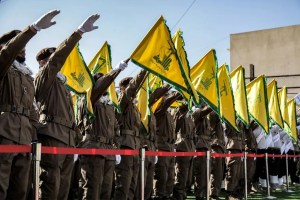The Palestinians are entering one of the most precarious periods in their nation’s history. The normalization of relations between Israel and the United Arab Emirates is only the beginning as other Arab and Muslim states are expected to follow. And that, whatever Israel and the Gulf Arab states may think now, makes the necessity of a Palestinian state all the more obvious.
On Tuesday, Haidar Badawi Sadiq, spokesman for the Sudanese foreign ministry, confirmed talks between Khartoum and Jerusalem and predicted a treaty before the end of the year. On Wednesday, Sadiq was fired and the ministry denied all knowledge of secret negotiations. Maybe Sadiq spoke out of turn; maybe he jumped the gun; maybe he floated the test balloon that he was told to.
No matter. Whether Sudan is next or later is not as important as the fact that momentum is now with those who want peace with Israel, or at least no longer see the merit of denying their countries the economic, diplomatic and security advantages of cooperation with the Jewish state.
Israelis dream of being recognized at last as part of the region — neighbors, not colonists. Although those countries that will seek bilateral relations in the coming months and years will do so for a variety of reasons, every time one of them extends a hand of partnership, it will tacitly be acknowledging the historical and moral justice of Zionism.
Integration into the region will have its impact on Israel, too. An Israel that feels more secure and less isolated may shed some of its cynicism about peace and cooperation built up in recent years.
What, though, of the Palestinians? Pan-Arab and pan-Muslim support for their cause has been central to the withholding of recognition and cooperation from Israel, but that is changing. Palestine no longer occupies the place it once did in the political and cultural identity of elites across the region, and even on the streets there has been a cooling off.
It has not helped that the Palestinians have repeatedly rejected generous offers of peace, land and prosperity from the Israelis. If the Palestinian Authority doesn’t care about statehood, why should anyone else? Palestinian rejectionism has brought about a rejection of the Palestinians.
While the prospect for diplomatic, economic and cultural ties between Israel and the Arab world gives cause for joy, it remains the case that the Palestinians are without a state. The absence of such an entity means that Palestinians in Judea and Samaria live under a mixture of civilian and military self-government and Israel military governance. That situation, and the indignities and injustices that accompany it, has propelled Palestinian statehood to a prominence on the international agenda that most territorial disputes cannot hope for. The danger for Ramallah is that the Palestinian cause is being shunted to make way for a new Middle East, in which Israel is one of the main power brokers and looked to by its Arab and Muslim allies for protection and prosperity.
[special_offer]
Resolving the plight of the Palestinians will take systemic change in both Gaza and Judea and Samaria, including reform of political institutions, the construction of a Palestinian middle class, and the forging of a new culture rooted in liberalism, tolerance, cooperation and peace.
Of course, this has been the case for decades now and a succession of sympathetic world leaders have tried to secure these changes to no avail. From the Palestinian Authority, there has been rejection, obstruction and incitement — and the statelessness of the Palestinians has continued. Fatah knew it could get away with almost any corruption or stupidity because it was all but compulsory for the Arab powers to declare their commitment to the brothers in Palestine.
The dread dawning in Ramallah is that even their brothers no longer care. But if the Arab world really is wiping its hands of the Palestinians, Israel will find itself bearing even more responsibility for their welfare. Palestine may be off the agenda in the Arab nations, but in Israel normalization might make the necessity of a Palestinian state all the more obvious.
This article was originally published on The Spectator’s UK website.


















